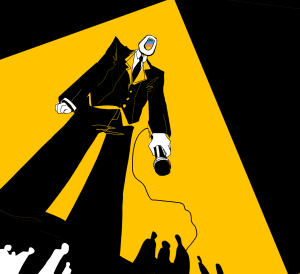Strange things can be seen on Case Western Reserve University’s campus – a professor carrying a guitar case or several beach balls, for example. But what may be strange to most is just the norm for several freshmen in their ENGR 131 class, Matlab, taught by Dr. Chris Fietkiewicz. However, there is more to him than his innovative ways of teaching Matlab and his guitar skills.
Fietkiewicz’s interest in chemistry and biology grew into curiosity about intelligence. When coupled with computer programming, it turned into a pursuit of artificial intelligence. He believed that, since artificial intelligence had a long way to go, he would study a field called computer neuroscience.
Computer neuroscience is a field in which computers are used to model the part of the brain that scientists study and, in Fietkiewicz’s case, breathing. He wanted to study specifically how the brain unconsciously sets and sends signals for our lungs to keep breathing. Even though breathing is far from intelligence, he believes that by understanding the simpler aspects of the brain, we can begin to comprehend the more complex aspects as well.
He began his work in the field as a graduate student, writing his dissertation on breathing in laboratory rats. He worked in a wet lab, a lab in which chemical and biological matter is tested, measuring and manipulating brain tissue by placing electrodes on neurons to stimulate them and create signals. By changing the signal, the interactions between neurons change, enabling him to manipulate breathing in rats.
His research focus has since shifted to working in a computer lab, where he creates equations that model brain cell interactions. The computer then simulates what takes place in the brain and models the interaction between neurons.
Research has taught Fietkiewicz that that persistence always pays off. He spent eight years in school before obtaining his Ph.D. in Computer Science from CWRU in 2010. He faced several obstacles in his research, including a lack of funding. There were also glitches in his set-up, including delays in the computer, which, for a computer engineer, was extremely frustrating.
Once, while setting up for his most important test run, the tubes that supplied fluid for the brain tissue broke, and the brain tissue almost died. Fortunately, he fixed it with enough time to salvage the experiment and record results.
As a research university, CWRU has many opportunities for research, which, in Fietkiewicz’s case, lead to exciting new frontiers in science that have yet to be fully explored. His advice for incoming freshmen is that, “when dealing with research, persistence and a strong work ethic are key.”















